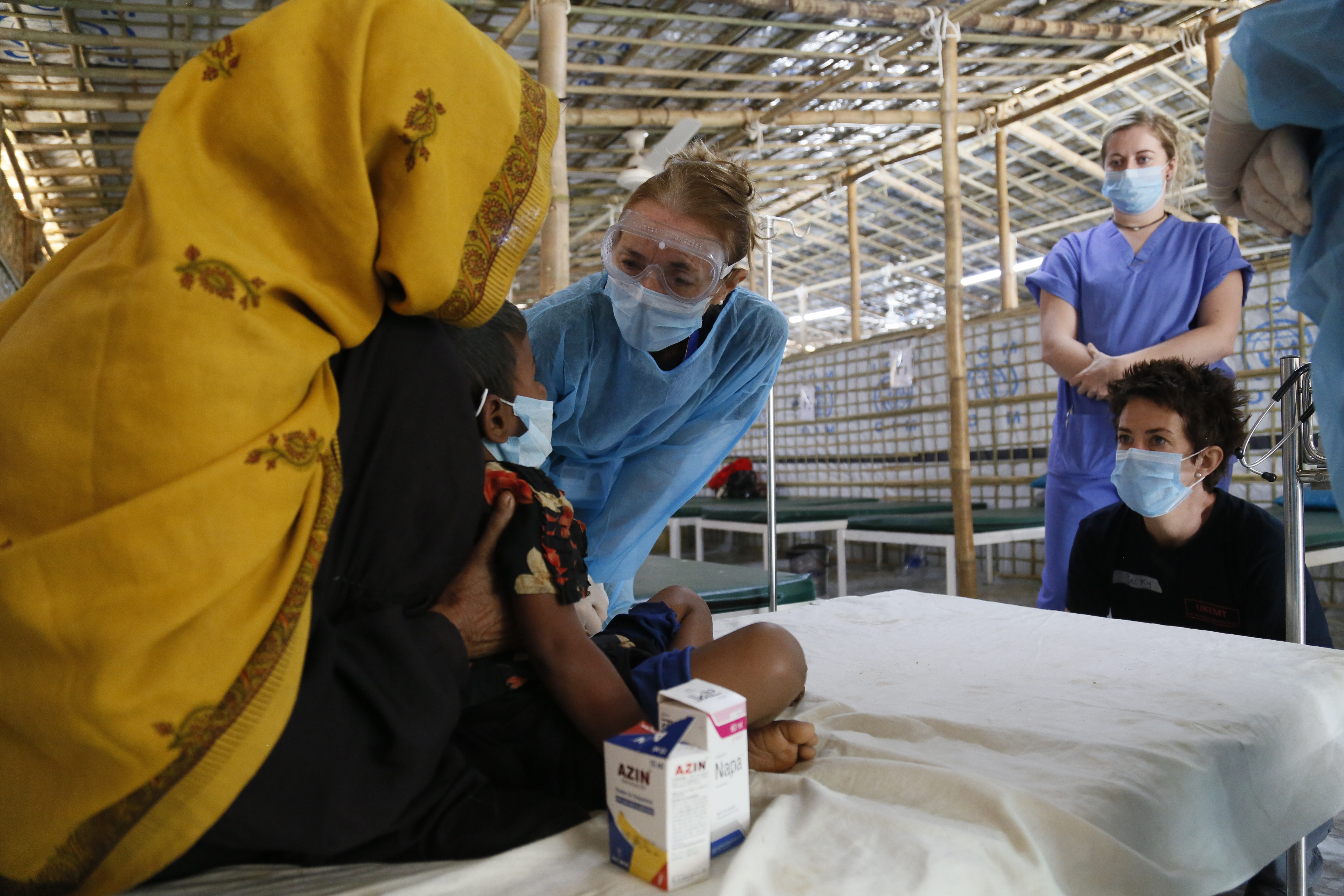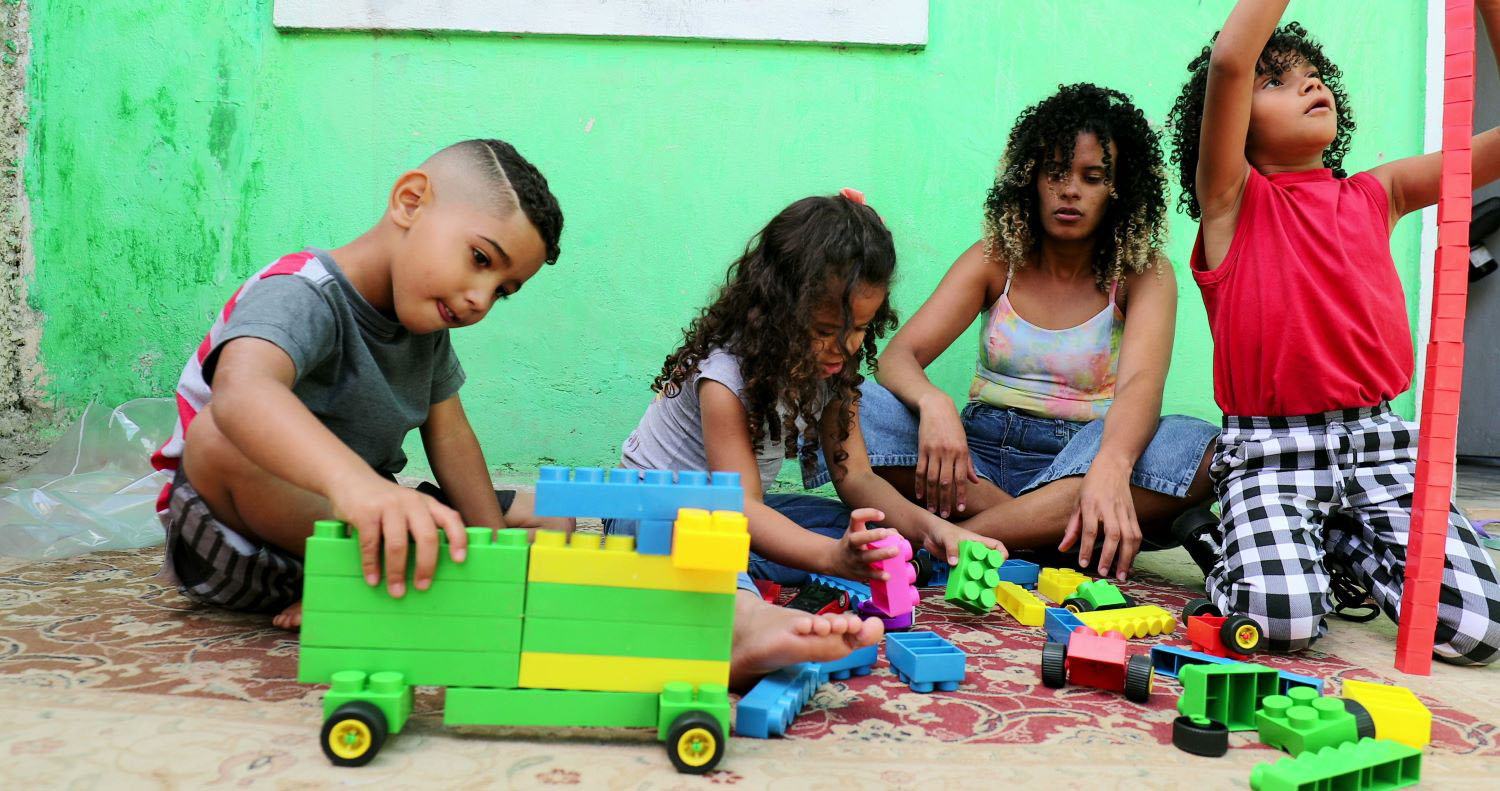This week the world’s largest conference on issues affecting women and girls, Women Deliver, is being held in Vancouver, Canada. High on the agenda is sexual and reproductive health and rights (SRHR) for women and girls in humanitarian settings. To inform these discussions, we have just published a policy note exploring these issues amongst Rohingya refugees and host communities in Cox’s Bazar, Bangladesh.
Two years ago, widespread violence carried out with “genocidal intent” in Myanmar forced 745,000 Rohingya to flee to Bangladesh and settle in camps in Cox’s Bazar. Over 304,000 of the refugees are women and girls of reproductive age, in extreme need of both emergency and longer-term SRHR services, including family planning, comprehensive post-rape care, STI and HIV testing and treatment, safe abortion, and maternal health care. Many have additional needs related to sexual trauma experienced in Myanmar and/or in Bangladesh.
Donors have provided significant humanitarian financing to help meet these needs, including exceeding UNFPA’s funding request for 2018. Yet there remain significant gaps in SRHR access, capacity, data, and services:
-
Access barriers include a limited number of 24/7 facilities, threats of violence at night, low facility birth rates (43 percent), and weak referral pathways.
-
Capacity constraints include limited patient and bed capacity in health facilities and inadequate training of midwives for essential services (e.g., STI testing).
-
Data is lacking, in particular a coordinated and transparent mechanism for data collection, analysis, and use to understand access to, and quality of, services.
-
Services, including HIV/AIDS testing and treatment, delivery of birth control implants by midwives, and comprehensive abortion care, are restricted by government policies. Coverage for hosts has also decreased, due to the refugee influx, contributing to increased tensions.
To address these gaps, donors should work with the UN and the government of Bangladesh to assess medium-term needs for both refugees and hosts, and provide evidence-based responses. In our policy note, we provide two recommendations for donor action:
1. Encourage the government of Bangladesh to assess key policy barriers to effective SRHR implementation and adopt a more coordinated approach to reduce them
Such policy dialogue should work towards providing access to long-acting reversible contraception (LARCs), comprehensive post-rape care, and safe abortion and post-abortion care; as well as the ability to test for and treat HIV/AIDS in camps, for women to access family planning services without couple’s registration, and to build effective and secure health facilities. These barriers affect both refugees and hosts, so addressing them would also advance progress toward Bangladesh’s existing health and family planning goals (e.g., Family Planning 2020, National Strategy for Adolescent Health).
2. Increase financing to strengthen local health systems to meet the needs of both refugees and hosts
On average, refugees are displaced from their country of origin for 10 years. Given the lack of conditions for safe and voluntary return to Myanmar, it is likely that the Rohingya situation will be protracted. While humanitarian response gaps deserve careful attention, it is also time for donors, the government of Bangladesh, and implementing partners to consider medium-term plans for providing quality SRHR services at scale to refugees and hosts.
There are currently health facilities that serve both refugees and hosts, but a strategy for further development of host community facilities is needed. Donors, including the World Bank and other development actors, should assess needs and utilize development financing to meet SRHR priorities, including training health workers, strengthening infrastructure, and improving access to emergency care and hospitals.
Donors have the opportunity to make SRHR more accessible and effective for the Rohingya, while also advancing policy changes that will improve care for Bangladeshis and help the country meet its SRHR commitments. We call on those donors present at Women Deliver this week to recognize the importance of these issues and to act now to improve conditions for everyone in Cox’s Bazar.
CGD blog posts reflect the views of the authors, drawing on prior research and experience in their areas of expertise.
CGD is a nonpartisan, independent organization and does not take institutional positions.






